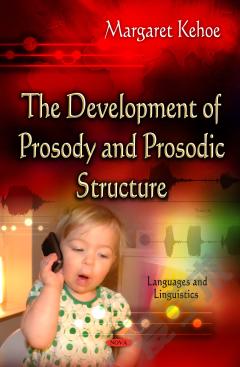Intonation and Prosodic Structure
This book provides a state-of-the-art survey of intonation and prosodic structure. Taking a phonological perspective, it shows how morpho-syntactic constituents are mapped to prosodic constituents according to well-formedness conditions. Using a tone-sequence model of intonation, it explores individual tones and how they combine, and discusses how information structure affects intonation in several ways, showing tones and melodies to be 'meaningful' in that they add a pragmatic component to what is being said. The author also shows how, despite a superficial similarity, languages differ in how their tonal patterns arise from tone concatenation. Lexical tones, stress, phrase tones, and boundary tones are assigned differently in different languages, resulting in great variation in intonational grammar, both at the lexical and sentential level. The last chapter is dedicated to experimental studies of how we process prosody. The book will be of interest to advanced students and researchers in linguistics, and particularly in phonological theory.
{{comment.content}}








 京公网安备 11010802027623号
京公网安备 11010802027623号